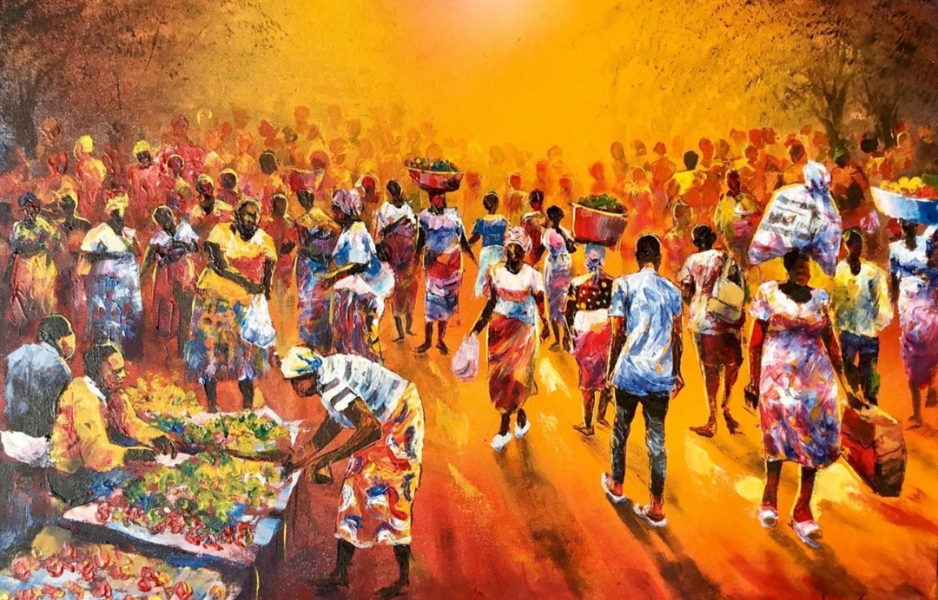Angels in Shona Culture
Shona culture is rich in spiritual beliefs and practices, and one of the most fascinating aspects of this culture is the belief in angels. In Shona traditional beliefs, angels are considered spiritual beings that act as messengers of the gods and protectors of human beings.
The Role of Angels in Shona Culture
Angels are believed to be intermediaries between the divine and human realms and play a significant role in the spiritual life of the Shona people. They are revered for their ability to bring guidance, comfort, and support to those in need. Shona people believe that angels can help them overcome obstacles, heal illnesses, and protect them from harm.
Angels are also seen as spiritual guides who can help individuals on their spiritual journey. Shona people believe that angels can provide insight and wisdom to those who seek it and can help them connect with the divine.
The Significance of Angels in Shona Culture
Angels hold a significant place in Shona culture, and their importance can be seen in various aspects of the culture. For instance, many Shona people have angelic names, which they believe can bring them blessings and protection. Angels are also depicted in art and literature, and their images can be found in many Shona ""Home""s and public spaces.
Furthermore, angels are an essential part of Shona religious ceremonies and rituals. They are invoked during ceremonies to provide spiritual protection and guidance, and their presence is believed to bring blessings and good fortune.
How Angels are Perceived in Zimbabwe
Although Christianity has had a significant influence on Zimbabwe, many Zimbabweans still hold on to their traditional beliefs, including the belief in angels. In Zimbabwe, angels are perceived as powerful spiritual beings that can provide protection and guidance to those who seek it.
Many Zimbabweans believe that angels are present in their everyday lives and can be called upon for help and support. They also believe that angels can communicate with them through dreams, visions, and other spiritual experiences.
The belief in angels is an essential part of Shona culture and Zimbabwean society. Angels are revered for their ability to provide guidance, comfort, and protection to those in need and are seen as powerful spiritual beings that can help individuals on their spiritual journey. Understanding the role and significance of angels in Shona culture can provide insight into the spiritual beliefs and practices of the Shona people.

The town of Beitbridge was named after Alfred Beit, the founder of the De Beers diamond mining company and a business associate of Cecil Rhodes. He was also a director of several companies, including the British South Africa Company and Rhodesia Railways. The Alfred Beit Road Bridge, which is a prominent feature of Beitbridge, was constructed in 1929 and financed jointly by the Beit Railways Trust and the South African Railways. This bridge, and subsequently the town, were named in honor of Beit's significant contributions to the region's infrastructure and economic development.
Alfred Beit, born on February 15, 1853, in Hamburg, German Confederation, was a notable figure in South Africa's history, renowned as an Anglo-German gold and diamond magnate. His legacy extends beyond his business acumen, as he significantly contributed to infrastructure development in Africa and various educational and scientific endeavors.
Beit's early life in Hamburg marked the beginning of a journey that would see him become a central figure in South Africa's diamond and gold industries. Apprenticed to Jules Porgès & Cie, a diamond firm, he honed his skills in stone examination. His initial venture into property speculation in South Africa laid the groundwork for his future successes. After moving to Kimberley, Cape Colony, in 1875, Beit quickly became intertwined with the diamond business, collaborating closely with Cecil Rhodes and playing a vital role in the Kimberley Central Company. His focus on the Kimberley mine and subsequent involvement in the goldfields of Witwatersrand in 1886 marked significant expansions of his business interests.
In 1888, Beit shifted his base to London, better positioning himself to manage his financial empire and support Rhodes' ambitions in Southern Africa. His life in London was characterized by significant real estate acquisitions, including Tewin Water near Welwyn, a large Regency house with Victorian additions. However, Beit's involvement in the controversial Jameson Raid of 1895, aimed at triggering a coup in the South African Republic in the Transvaal, resulted in both him and Rhodes being found guilty in a House of Commons inquiry. Despite this setback, Beit continued to exert considerable influence in Southern Africa.
Beit's personal life was marked by his decision never to marry, and he had no children. He passed away on July 16, 1906, at Tewin Water, leaving behind a substantial estate. His philanthropic legacy is profound; he established the Beit Trust, which provided significant funds for infrastructure development in former Northern and Southern Rhodesia (now Zimbabwe, Zambia, and Malawi), focusing later on university education and research. Notably, one of the major projects financed by the Beit Trust was the Birchenough Bridge in former Southern Rhodesia. Additionally, in recognition of his generous donations, the Royal School of Mines at Imperial College London erected a memorial to Beit, and the Imperial College residential halls on Prince Consort Road were named Beit Hall in his honor
Beit's contributions to infrastructure and education, along with his central role in the diamond and gold industries, have left an indelible mark on the history and development of Southern Africa. His legacy continues to be felt in the region, notably in the form of educational and infrastructural developments funded through his philanthropic endeavors.
